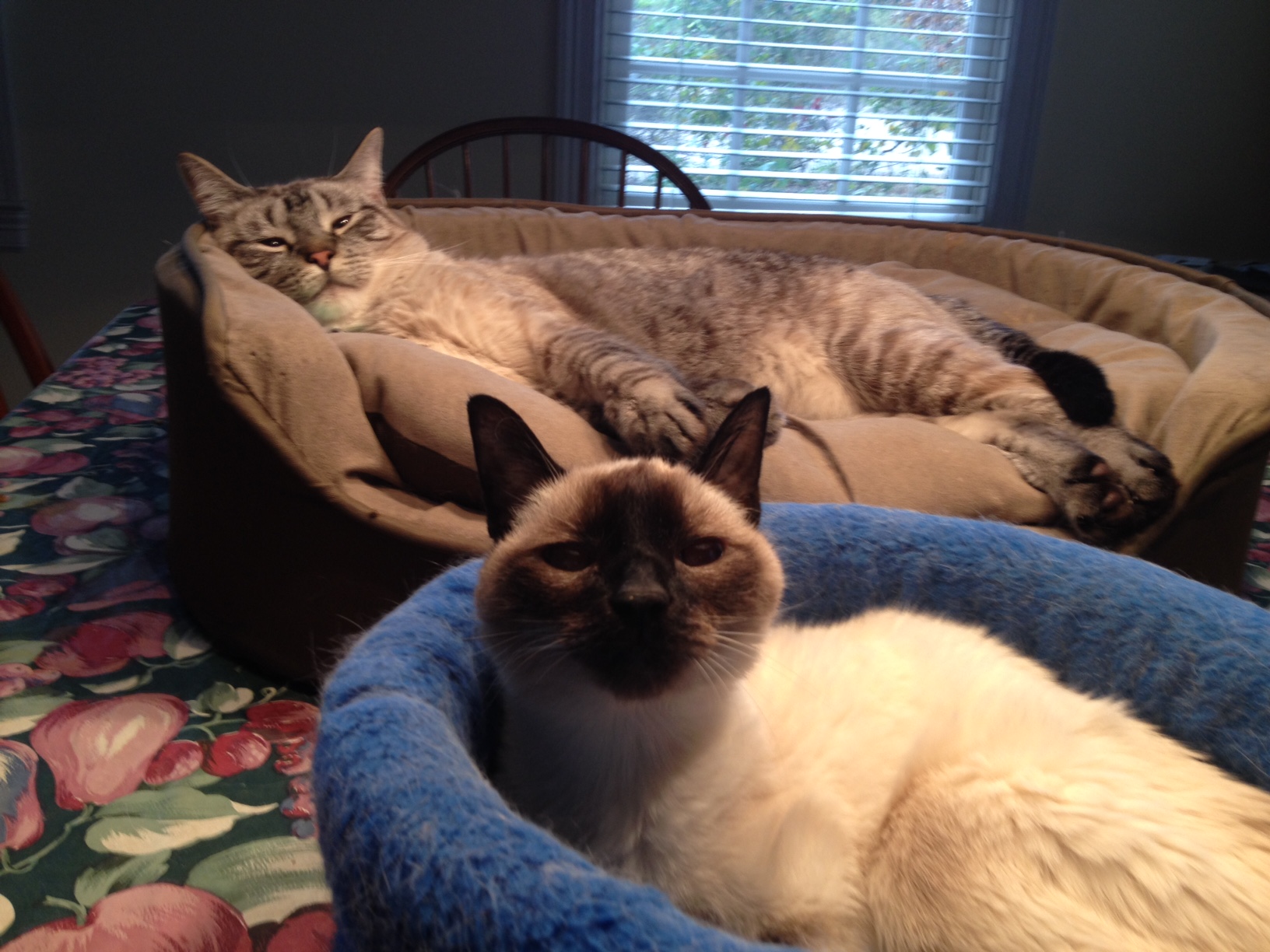Helping Your Cat In Her Golden Years
Guest post by Joanne McGonagle
Cats are living longer lives thanks to cat parents taking a more active role in their overall well-being and by making sure their cats receive preventative veterinarian care. According to the Banfield Pet Hospital’s State of Pet Health 2013 Report, the average lifespan of a cat in 2012 was 12 years, an increase of one year since 2002. While we are all happy that our cats are living longer  lives, we also need to recognize and respond to the special needs of our cat as they age.
lives, we also need to recognize and respond to the special needs of our cat as they age.
The Feline Advisory Bureau defines senior cats as those more than 10 years old and geriatric cats are more than 14 years old. The aging process results in physiological changes that affect the care an older cat needs. Understanding these changes will help you give your older cat the best possible care during their golden years.
Senior cats experience changes in their senses, including hearing and vision loss. They may also experience a loss in their mental abilities making it harder for your cat to cope with changes in their home. If you share your home with a senior cat, try to limit major changes such as introducing a new pet into the household, rearranging furniture or making other big changes to your cat’s daily routine.
As your cat ages, they will lose muscle mass along the back and hindquarters. This will contribute to weakness and perhaps limit their ability to jump. Geriatric cats might be suffering from arthritis, even though they don’t show signs of being in pain. Providing a littler pan with low sides will make it easier for your older cat to get in and out of the box. It will be helpful to place additional litter pans around your house to make eliminating more convenient for your cat.
If your cat prefers to perch in a location that requires her to jump or climb, you might consider creating a ramp up to her favorite place. Creating a cozy hiding place lower to the ground, as an alternative will be appreciated too. If your cat sleeps in bed, you could place pet stairs to help them climb in and out of the bed without having to jump up or down.
Older cats might begin to groom themselves less effectively, resulting in hair matting so you will want to help them out by gently brushing. This will keep their coat in good condition. The claws of older cats need extra attention too as they become thick and brittle. Trim your cat’s claws to keep them from becoming overgrown.
Your older cat will have a weaker immune system and become more susceptible to infectious disease. Because senior cats are prone to dehydration, they are less likely to recover from illness such as upper respiratory infections. Get into the habit of removing your shoes before you enter your home and wash your hands prior to petting or holding your cat. This is a good routine to protect all living beings in your home not just your elderly cat.
Dental disease is common in older cats. Providing preventative dental care throughout your cat’s life will enable her to live a longer healthier life and help to delay the accumulation of tartar, lost teeth and gingivitis. A cat suffering from dental disease may experience pain eating and drinking water reducing her intake of food and fluids to keep her healthy. You might need to switch from chunky style food to a pate style that is easier for your cat to eat. Try to monitor your cat’s food intake and if possible provide a water fountain to encourage her to drink more water.
 All of these little things will add up to making a big difference in the well-being of your cat in her golden years. Every year is precious with our little loved ones. Let’s help them live their best lives.
All of these little things will add up to making a big difference in the well-being of your cat in her golden years. Every year is precious with our little loved ones. Let’s help them live their best lives.
About the author: Joanne McGonagle has a Global Field Master of Zoology degree with a concentration on big cats and is the publisher of The Tiniest Tiger’s Conservation Cub Club. She is the author of two books, The Tiniest Tiger and An Ordinary Toad’s Extraordinary Night. She shares her home with Paul and their three cats Annie, Eddie and Mercy.





